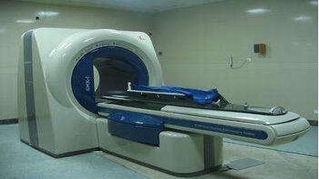由于抗癌药物的持续给药,引发左心室喷射分数显著升高,最终导致充血性心力衰竭。常见的致心肌毒性反应的药物如蒽环类药物地高辛。
2015年4月在《Trendsinpharmacologicalsciences》(药理学趋势)杂志发表的一篇文章指出,近年来越来越多数据表明,心肌毒性反应与蒽环类药物十分相关,且能够诱发剂量累的心脏损伤,从而影响了此类药物的使用。人表皮生长因子(EGF)受体2(HER2;ErbB2)是治疗乳腺癌的重要靶点。曲妥珠单抗(TRZ),是人源化抗HER2单克隆抗体,是目前推荐的第一线治疗HER2阳性的转移性肿瘤患者的药物。曲妥珠单抗的使用也由于其可能诱发心脏功能障碍,受到限制。心肌毒性反应能够产生游离铁离子,从而诱发氧化应激反应。目前有很多方法减小这类不良反应,但大多处于临床前研究状态。文章还指出目前还有一类新方法是通过个性化治疗癌症,包括通过分子筛查检测基因突变,然后进行个性化临床治疗。
英文原文:
Trends Pharmacol Sci. 2015 Apr;36(4):226-235. doi: 10.1016/j.tips.2015.02.005. Epub 2015 Mar 7.
Anthracyclines/trastuzumab: new aspects of cardiotoxicity and molecular mechanisms.
Rochette L1, Guenancia C2, Gudjoncik A2, Hachet O2, Zeller M3, Cottin Y2, Vergely C3.
Author information
Abstract
Anticancer drugs continue to cause significant reductions in left ventricular ejection fraction resulting in congestive heart failure. The best-known cardiotoxic agents are anthracyclines (ANTHs) such as doxorubicin (DOX). For several decades cardiotoxicity was almost exclusively associated with ANTHs, for which cumulative dose-related cardiac damage was the use-limiting step. Human epidermal growth factor (EGF) receptor 2 (HER2; ErbB2) has been identified as an important target for breast cancer. Trastuzumab (TRZ), a humanized anti-HER2 monoclonal antibody, is currently recommended as first-line treatment for patients with metastatic HER2+ tumors. The use of TRZ may be limited by the development of drug intolerance, such as cardiac dysfunction. Cardiotoxicity has been attributed to free-iron-based, radical-induced oxidative stress. Many approaches have been promoted to minimize these serious side effects, but they are still clinically problematic. A new approach to personalized medicine for cancer that involves molecular screening for clinically relevant genomic alterations and genotype-targeted treatments is emerging.







